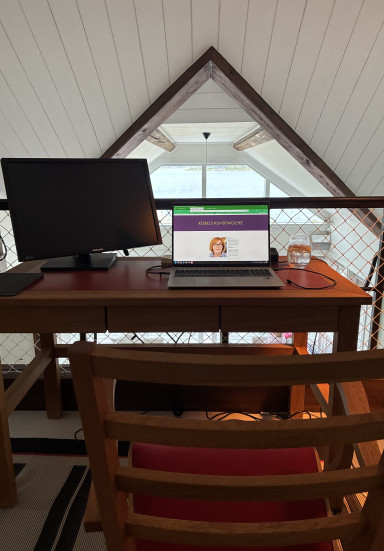

Stephan
Zilkens
,
Zilkens'News Blog 32 2025
August – the republic is on holiday and even the Chancellor is taking a few days off. His deputy, who does not belong to the same party, is using this opportunity to quickly push through a few laws that will benefit his clientele, but not the German SMEs, which represent by far the largest number of companies (more than 90%) and will have to bear the consequences. The vice-chancellor's colleague, who also sits on the executive committee of the 15% party, is determined to push through a law on collective bargaining for public contracts. So much for reducing bureaucracy – we only do that when the boss is in town. First, let's create something that generates reporting and documentation requirements, which in turn have to be monitored by an authority that has yet to be created. To call a spade a spade (unfortunately): the SPD cannot understand, use or even remotely support small and medium-sized businesses. Everything that is ideologically evil – exploitation, capitalism, unscrupulousness, concentration of capital (which Marx already found terrible in the 19th century), speculation – can be portrayed much better in large companies – and since only managers work there, many of whom are more interested in their own wallets than those of the owners, it is easier to bash the big guys – it always hits someone; and the owners remain anonymous because they are usually shareholders. The fact that many people who tend to vote for the SPD now view shares as part of their retirement provision is secondary. Klingbeil, Bas and their ilk are bothered by the fact that family-owned companies often make a much greater contribution to the well-being of their employees than joint-stock companies with equal co-determination. The Collective Bargaining Act (which sounds so innocent and uncontroversial) is causing massive damage to small and medium-sized businesses. Most of them stay away from collective agreements, but often pay their employees more than a collective agreement would allow. What they can hardly afford is the bureaucratic effort involved in proving that every hour worked by an employee (yes, of all genders) on a public contract complies with the collective agreement.
No one has yet explained to me why the same party is allowed to appoint two of the three new judges to the Federal Court of Justice.
Now the macho man in the White House has announced for a second time that the US is withdrawing from UNESCO.
Allegedly because the institution is infiltrated by something. UNESCO wants to promote peace and international understanding, strengthen scientific cooperation between nations, promote education and preserve cultural heritage. These are noble goals and, in times of tension, it is one of the few platforms that does not let the threads of conversation break. At present, one gets the impression that the Trump administration is boycotting or obstructing anything that cannot be brought into line. This is particularly felt by cultural institutions, some of which are changing exhibitions in anticipatory obedience in order to escape their fate. Most recently, the Smithsonian Institution removed all references to Trump's impeachment from its exhibition. This is accompanied by a weakening of the US dollar, which is, of course, the reserve currency for global trade. American goods are becoming cheaper – but whether this will be good news for the art market is questionable when a painting purchased for USD 1 million suddenly loses 10–20% of its value in other currencies.
Insurers are using the summer lull to prepare for the renewal season starting in September. The volume of claims in cyber insurance is rising, natural disasters are increasing in areas with high insurance density, and the global economy is having to contend with new tariffs and other circumstances that tend to hinder free trade. These are all factors that play a role in risk appetite and pricing. According to one of our competitors, who is assumed to know what they are talking about, industrial insurance is becoming cheaper in some areas. Consortium deals (also known as traditional participation deals) are necessary in the insurance industry to cover large risks. They are the only sensor that companies can use to gauge what is moving the market. Under antitrust law, they are prohibited from exchanging information with each other. This has already prompted some to turn their backs on the association or to stop providing data for statistics. When large brokers publicly announce softening tendencies, there is also a considerable amount of marketing calculation involved. Whether to believe it or not is the question for those responsible on the insurance side.
Stefan Kobel has again gathered a lot of information about the art market. Enjoy reading
Yours, Stephan Zilkens and the team at Zilkens Fine Art Insurance Broker GmbH in Cologne and Solothurn.
automatically translated